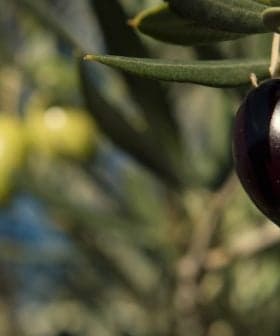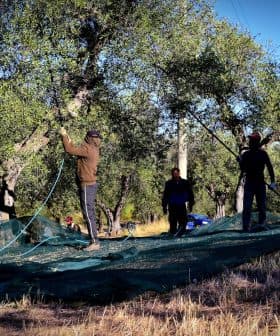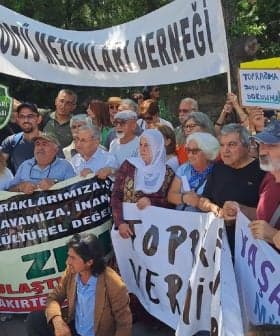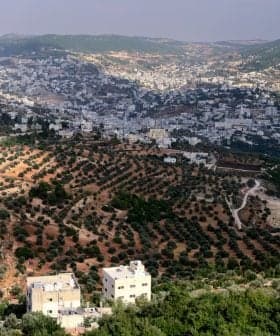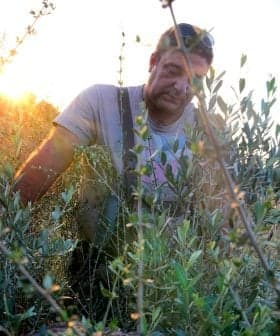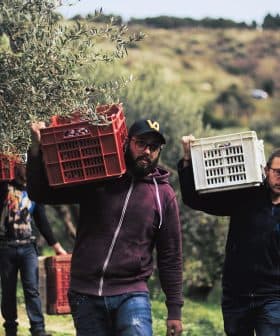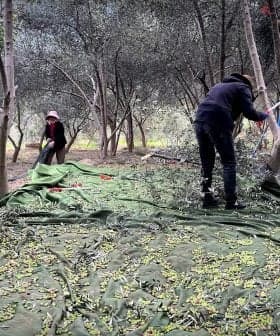Q&A with Hidamet Asa, Chairman of Turkish Olive Giant Marmarabirlik
Marmarabirlik is one of Turkey’s largest olive producers, processing olives into edible products and exporting to various countries. The company aims to increase exports, expand its product range, and focus on consumer satisfaction through quality and hygienic production to advance the industry as a whole.
One of Turkey’s biggest olive and olive oil producers, Marmarabirlik was established in 1954 as an association of Agricultural Sales Cooperatives, cultivating and marketing high quality olives with mutual assistance and cooperation. Its administrative center is located in Bursa and the association covers cooperatives of Gemlik (1942), Mudanya (1951), Orhangazi (1955), İznik (1970) in Bursa and Erdek (1952), Edincik (1976), Marmara Island (1988) in Balıkesir and Mürefte (1986) in Tekirdağ. Marmarabirlik’s main activity is to process the olives cultivated by the partners in South Marmara Region, as edible olives, olive oil and olive paste as well as marketing them to domestic and foreign markets. Chairman of the Board of Directors Hidamet Asa answered our questions about the company and the industry. Marmarabirlik employs around 600.
OOT: Can you tell us where Marmarabirlik is standing in the industry today?
HA: Marmarabirlik is one of the biggest olive producers and among the biggest 500 industrial establishments in Turkey. We have become the 345th company on Istanbul Chamber of Commerce list as well as 41st on Bursa Chamber of Commerce and Industry’s list. Our company is established on a total area of 403,000 square meters with a building area of 136,000 square meters (450,000 sq. ft.), and a storage capacity of 70,400 tons. It is a very important industrial establishment providing added value for the Turkish economy with an olive packing capacity of approximately 150 tons/day and olive oil production and filling of 220 tons/day in a hygienic place within modern plants.
Marmarabirlik purchases and processes approximately 40 – 45% of the edible black olive cultivated in the region and serves its products within Turkey through 60 agencies in 53 cities, and to Germany, Denmark, Switzerland, Bulgaria and Europe, Canada, Australia, and America. Last year, our sales were 144,572,000 lira (approx. US$95 million) from 25,000 tons of olives, olive paste and olive oil.
Marmarabirlik is also a leader in licensed trading storage.” Our company has built licensed olive and olive oil storage with the help of grants by the IMF (International Monetary Fund). When producer associates hand over their products they will get deposit slips for these products and be able to use them as cash. Licensed trading storage in Başköy district of Bursa has a capacity of 5,000 tons for olives and the one in Erdek has a capacity of 8,000 tons. Also the one in Başköy, has a capacity of 4,000 tons for olive oil.
OOT: What do you think of Turkey’s current situation about producing and consuming olive oil?
HA: Generally olive oil production is between 120,000 and 170,000 tons in our country. Domestic consumption is less than 100,000 tons. I believe the tax and quota limitations of EU (European Union) countries are making it very hard to export olive oil.
OOT: What about the culture of olive oil in Turkey?
HA: Olive oil culture in Turkey is still developing. Olive oil is known and consumed in the regions of Aegean coast, Marmara and Mediterrenean, however the consumption is really low in the regions of Black Sea Coast, Eastern Anatolia and Southeast Anatolia. It’s sad to see that the olive oil consumption per person in our country is only around 2kg while our neighbor country Greece’s number is around 20 kg.
OOT: Was the olive oil industry affected by the financial crisis? If so, how?
HA: First of all, it’s important to clarify the cost issue of olive oil. In today’s conditions, the cost of olives for olive oil is more than 1 Turkish lira (about 65 cents). When we think about it, we can produce 1 kg of olive oil from approximately 5kg of olives and that means the gross cost of olive oil is 5 lira ($3.27) before packaging (per kg). When you add the extra costs of storage, packaging and marketing, the numbers are getting higher. When prices increase, consumers will eventually choose the less expensive vegetable oil options. However, it’s necessary to encourage our consumers to buy more olive oil for healthy benefits as well as to support the producers and this important product of olive oil.
OOT: How’s Marmarabirlik doing in foreign markets? Are exports increasing?
HA: If we compare the first 7 months of the past 6 years, we can say that our export amounts have increased between 19 — 82 % and exports have increased between 24 – 118 %. These mentioned numbers show that Marmarabirlik’s share in the international market is increasing by each passing year. Especially in 2010, Marmarabirlik has managed to get into new markets including South Africa, Dubai, Georgia and New Zealand. We’re making plans to increase our exports for the future and have goals of getting into new markets including Japan, Iraq, Iran, Russia and Ukraine.
OOT: Can you tell us about the company’s future projects?
HA: Marmarabirlik’s annual extra-virgin olive oil production is around 1500 tons. The licensed olive oil storage of 4000 tons capacity is not only offering services for the associate producers of Marmarabirlik, but also for other producers. Marmarabirlik does the packaging for olives that the associate agricultural cooperatives produce, and currently offers 332 products to market with bar codes. Marmarabirlik recently got bar codes for the products of olive oil soaps and olive flower cologne.
Thanks to R&D units, Marmarabirlik has been reducing the salt in its products, which has been scientifically proven to be harmful to health. In addition to this and in line with market demand, Marmarabirlik broke the habit of collecting olives before they ripen and started to put sliced green and black olives to the market. So Marmarabirlik is gaining an advantage by presenting alternative products to the domestic and international markets. It therefore deserves to be one of the biggest olive producers of the world.
OOT: What challenges currently confront the olive oil industry in in Turkey?
HA: The main market for olive producers in Turkey is the EU, with Germany as the major market. It’s because the ethnic population is high in these markets. It’s the same for other countries in the world, too.
At the same time, the domestic market contraction, increasing yields, and for all of the producers targeting the EU market because of its easiness, all make the market narrowing with low profit rates and decreasing competitive capacity. Therefore our exporters should target new markets, realize the value of the market in general, not according to the ethnic population, review their investment and brand policies in this regard and, most importantly, produce by consumers’ preferences. At the end, it’s all about giving importance to R&D activities.
To be briefly stated, although there’s not a shortage in raw materials, the main problem is the processing technique of raw materials. I mean, we can say that either there’s a problem with the level of quality that export markets are expecting, or with the processing technique. In terms of taste quality, ethnic markets might not have a problem but the local consumers of export markets and their consumption patterns can be different.
OOT: What should be done in order to advance the industry entirely?
HA: First of all, we should be able to sell with the keen prices of challenging market conditions, and we will develop more products. At the same time, we should be able to offer products according to consumers’ tastes and preferences, that lead to consumers’ satisfaction. Consumer satisfaction will inevitably be reflected to producers. Therefore, we’re focused on consumer appreciation with quality and hygienic production. We’ve expanded our sales and marketing network. In order to revive the dealership system, and make the shelves of chain stores carry more products of Marmarabirlik, we have increased our efforts as a team. The sales figures in the first half of 2010 show that we are on the right track. As we raise the bar everyday, our success gets bigger with our producer-partners alliance.


